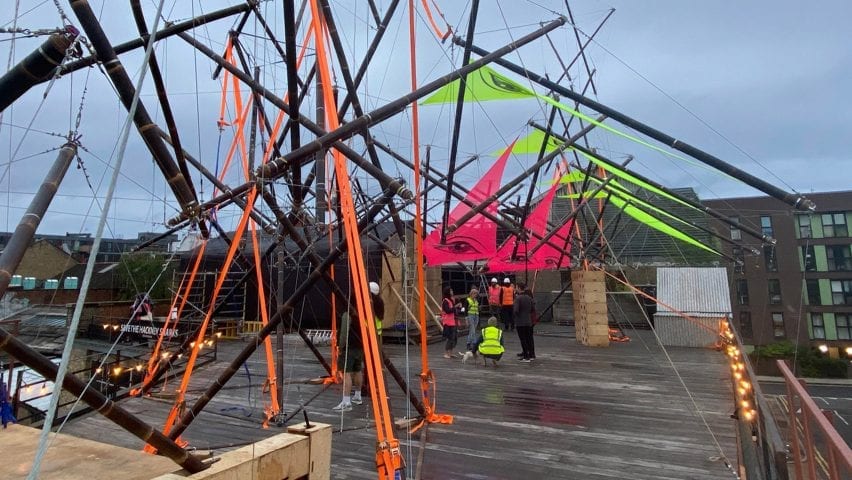
Antepavilion building "smashed up" and staff arrested in police raid on design workshops
Police have raided the building that hosts the annual Antepavilion architecture commission, arrested a number of its staff and threatened to remove a tensegrity structure on its roof.
The raid was intended to target climate activist group Extinction Rebellion, whose members had been attending workshops at the Hoxton Docks arts building in east London.
However, Dezeen understands that all the people arrested during yesterday's raid were employees or tenants of Hoxton Docks.
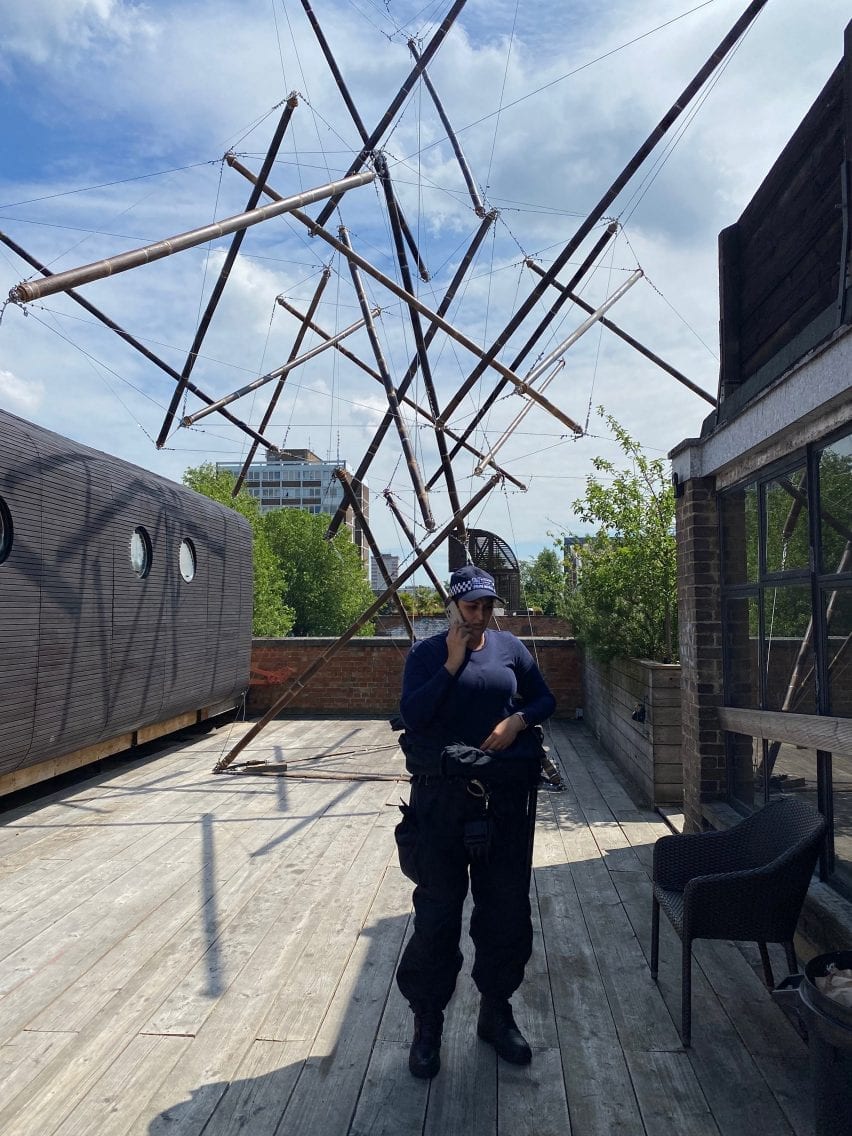
"I spent the night in jail," he said Russell Gray, owner of the canalside building. "They smashed their way in through various doors and smashed the place up."
Gray was arrested when he arrived at the building during the raid following a call from his son, who was also arrested along with a tenant of the building.
They were released the next day but Gray said police told him they would return to dismantle the rooftop structure. "They're saying they're gonna come and take it down," he told Dezeen.
The structure, called All Along the Watchtower, is a reusable, lightweight "tensegrity" structure made of bamboo poles and steel cables designed by a collective called Project Bunny Rabbit.
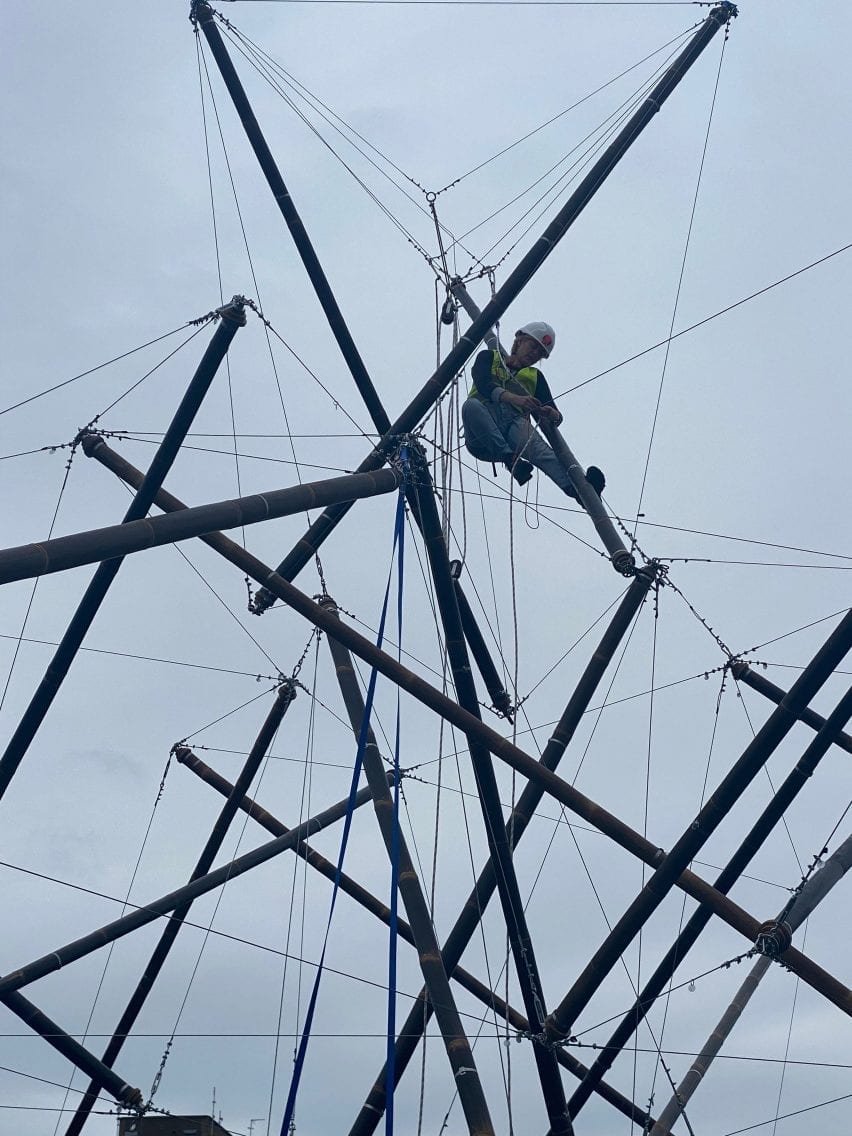
The group developed the towers for Extinction Rebellion, which used them to block access to Broxbourne printworks in Hertfordshire last year. Protesters erected the "beacons" and then climbed into them.
Consisting of several linked tensegrity towers, the Hoxton Docks structure had been completed earlier this week by volunteers attending workshops at the arts building.
The installation and workshops were not organised in collaboration with Extinction Rebellion but they attracted supporters of the group. "They got a lot of volunteers," explained Gray, who is director of property company Shiva that owns the building.
"Obviously, climate change mobilises people like few other things. People could be taught how to make the components and how to assemble the structures."
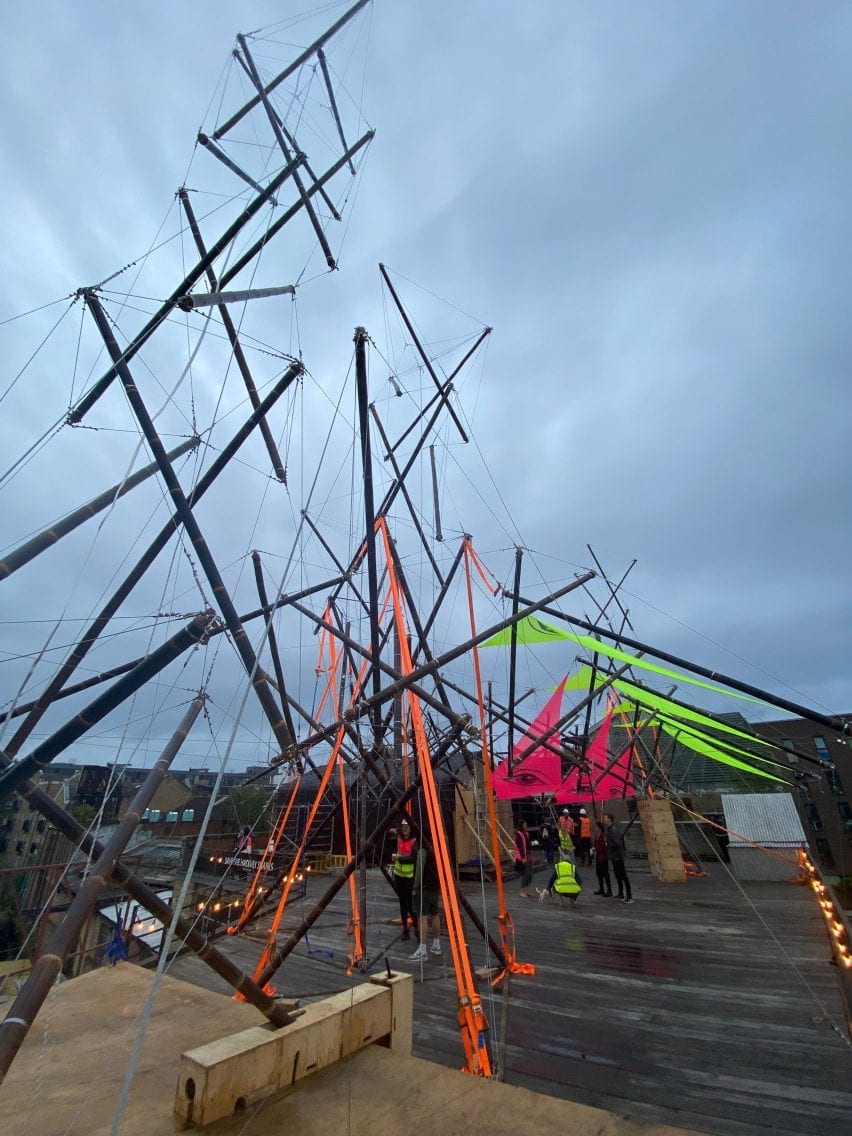
"We are an architecture prize," he added. "We weren't prepared to become a propaganda tool for these Extinction Rebellion people."
"We support the erection of the structure, the workshop, training people to do construction and craftsmanship. It doesn't extend to any endorsement of Extinction Rebellion, on whom I'm neutral at best."
Police raided the building after receiving intelligence that the protest group planned to use tensegrity structures again on protests planned for this weekend, according to the Guardian.
The newspaper reported that a dozen people were arrested and equipment seized in raids on three different premises.
Police told the newspaper they had "taken proactive action to prevent and reduce criminal disruption which we believe was intended for direction at media business locations over the weekend”.
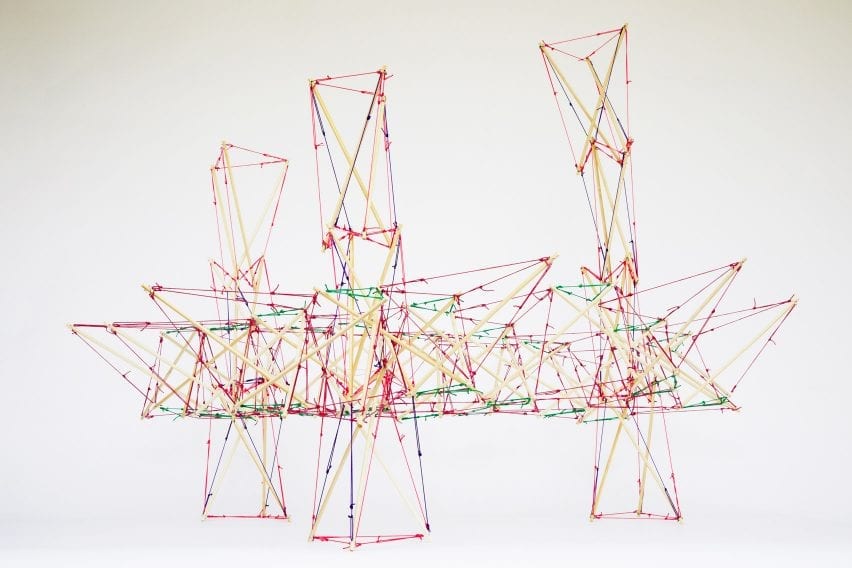
But Extinction Rebellion said: "As far as we are aware, those arrested have no connection to the protest last September or to Extinction Rebellion."
In September, seventy activists were arrested at Broxbourne, a town north of London, after erecting and climbing into tensegrity structures.
They were protesting against media mogul Rupert Murdoch, whose newspapers are among those printed at the plant.
At the time, Extinction Rebellion said the protest aimed "to expose the failure of these corporations to accurately report on the climate and ecological emergency, and their consistent manipulation of the truth to suit their own personal and political agendas."
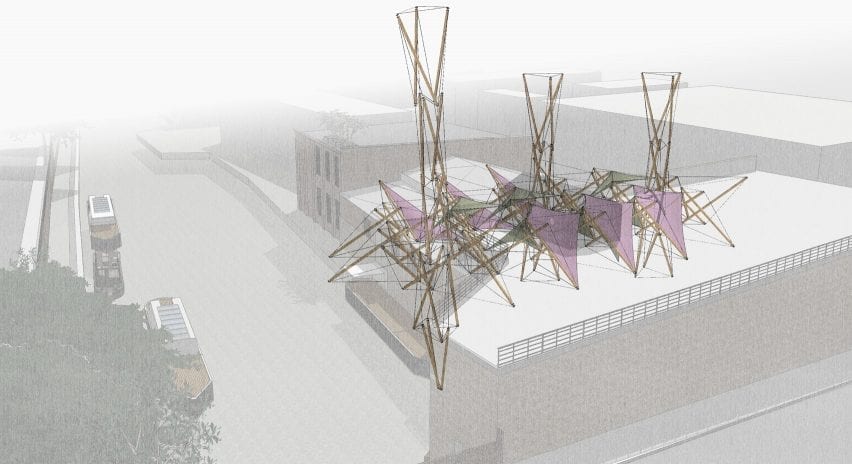
Launched in 2017 by Shiva and the Architecture Foundation, the annual Antepavilion competition seeks temporary architectural interventions for Hoxton Docks, a former coal storage building on the Regent's canal in Hoxton.
This year's competition called for temporary or mobile structures that would not fall foul of planning rules. This follows an ongoing battle between Gray and Hackney Council, which served an injunction on last year's installation of floating sharks.
The Architecture Foundation ended its involvement with the competition earlier this year following ongoing controversy over the structures.
Tensegrity structures consist of non-touching structural members held in compression by cables. The name was coined by American architect Buckminster Fuller as a contraction of "tensional integrity".
"Tensegrity was an experimental construction method was much explored in the 1960s and 1970s," Gray explained. "They just make striking structures because they're lightweight. They're open. They're basically a bunch of steel tension wires. It seemed like an ideal thing to do."
The Extinction Rebellion protest structures were praised by Dezeen columnist Phineas Harper, who last year said they were "worthy contenders for the Stirling Prize."
"Architecture rarely makes the headlines, yet all of a sudden these two structures were splashed across front pages at the centre of a national debate – put there not by starchitects but by environmentalists," he wrote.
"The towers were innovative, eye-catching, ecologically sound and socially purposeful – a combination contemporary practice rarely achieves. They are the most gutsy architecture of the year."
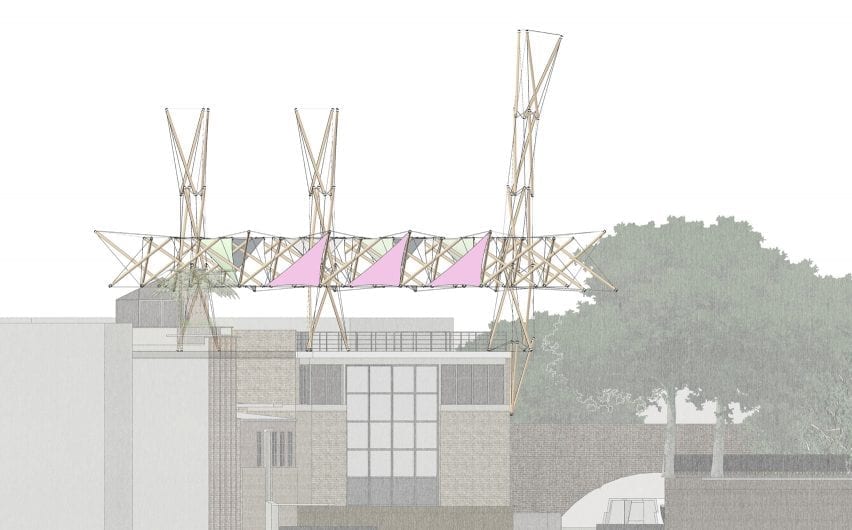
Tensegrity structures are used by protesters as they are easy to set up but, once inhabited, hard for police to remove them safely. However, Alanna Byrne of Extinction Rebellion pointed out that the Hoxton Docks structure is an artwork.
"Why are the police confiscating an art installation?" said Byrne. "Under what powers are they arresting employees of an art space and people who live in the building?"
"This is a vast overreach of police powers, a major infringement on the lives of those arrested, and suppression of freedom of expression. Would this be happening if Extinction Rebellion wasn’t holding Rupert Murdoch and the rest of the billionaire owned press to account?"
The structure was commissioned as a "special early summer commission" alongside the winner of this year's Antepavilion competition. The winner, AnteChamber by Studio Nima Sardar, will be built later this year.
The photographs are by Russell Gray and the renderings are courtesy of Antepavilion.